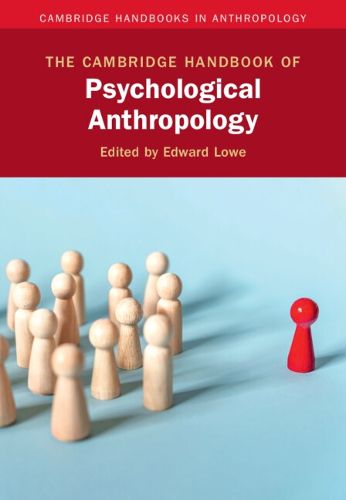Readings Newsletter
Become a Readings Member to make your shopping experience even easier.
Sign in or sign up for free!
You’re not far away from qualifying for FREE standard shipping within Australia
You’ve qualified for FREE standard shipping within Australia
The cart is loading…






Bringing together contributions from a global team of renowned scholars, this Handbook provides a comprehensive guide to the dynamic field of psychological anthropology. It is divided into five parts and includes a critical updating of the theoretical foundations for psychological anthropology, covering cognitive, psychodynamic, linguistic, and phenomenological views. It provides the first-ever lifespan perspective on human development in culture from the perspective of anthropology and also contains sections that connect the biological dynamics involved in human experience through to social, cultural, and historical perspectives. It considers important political-economic concerns for psychocultural studies, including Indigenous perspectives and expert voices from the global south. By showing how researchers can break out of the disciplinary silos that separate important fields in the human sciences, like anthropology and psychology, it emphasizes the importance of working collaboratively together in order to enrich our understanding of the human condition.
$9.00 standard shipping within Australia
FREE standard shipping within Australia for orders over $100.00
Express & International shipping calculated at checkout
Stock availability can be subject to change without notice. We recommend calling the shop or contacting our online team to check availability of low stock items. Please see our Shopping Online page for more details.
Bringing together contributions from a global team of renowned scholars, this Handbook provides a comprehensive guide to the dynamic field of psychological anthropology. It is divided into five parts and includes a critical updating of the theoretical foundations for psychological anthropology, covering cognitive, psychodynamic, linguistic, and phenomenological views. It provides the first-ever lifespan perspective on human development in culture from the perspective of anthropology and also contains sections that connect the biological dynamics involved in human experience through to social, cultural, and historical perspectives. It considers important political-economic concerns for psychocultural studies, including Indigenous perspectives and expert voices from the global south. By showing how researchers can break out of the disciplinary silos that separate important fields in the human sciences, like anthropology and psychology, it emphasizes the importance of working collaboratively together in order to enrich our understanding of the human condition.